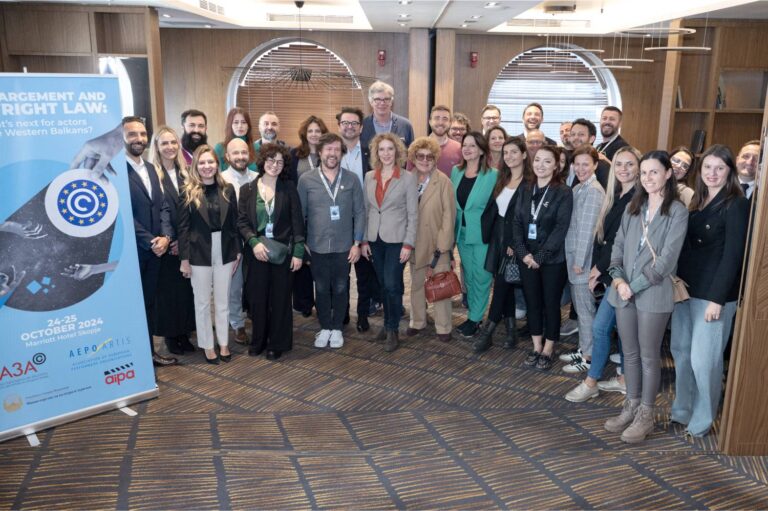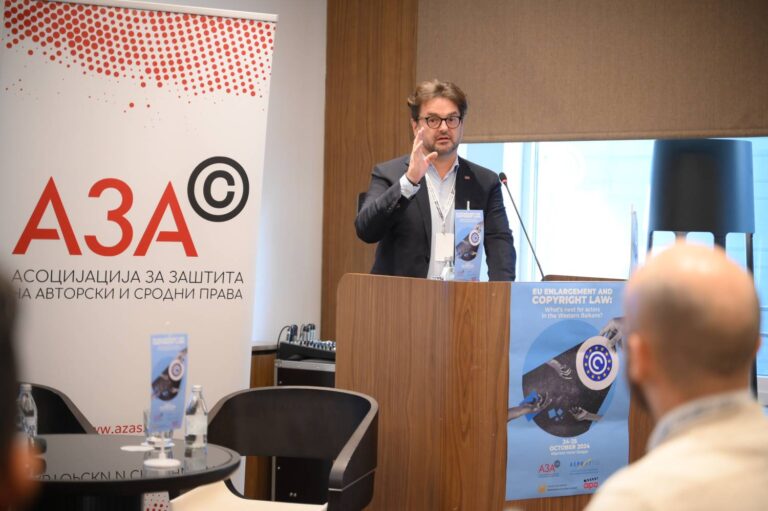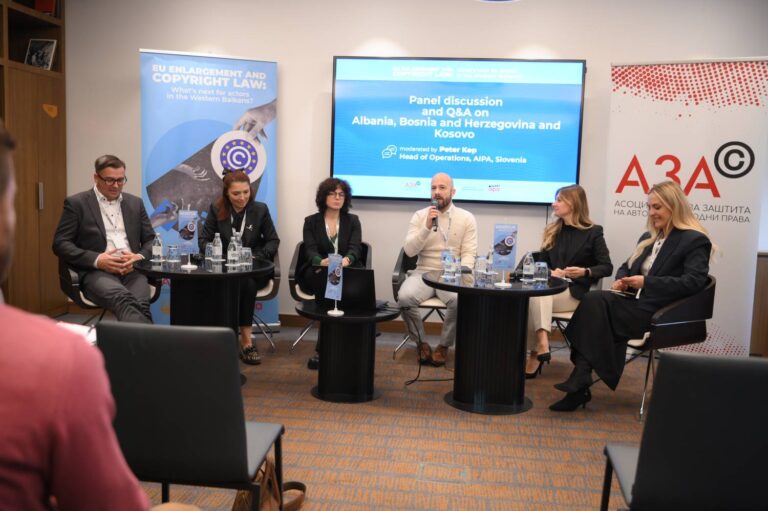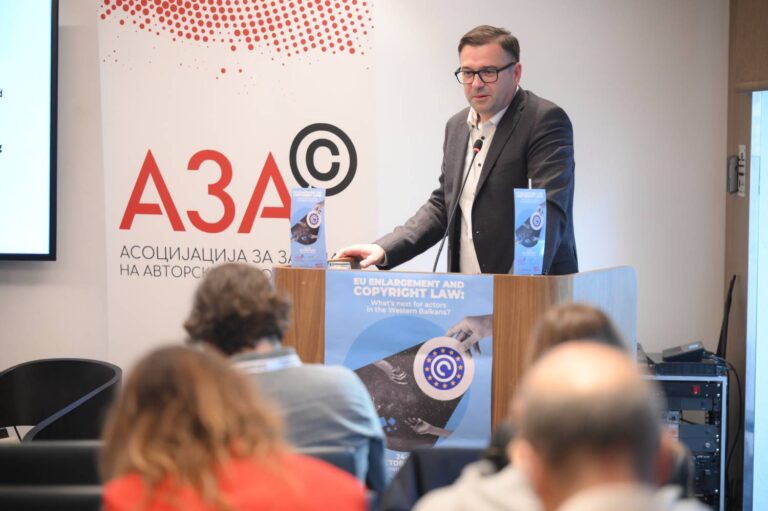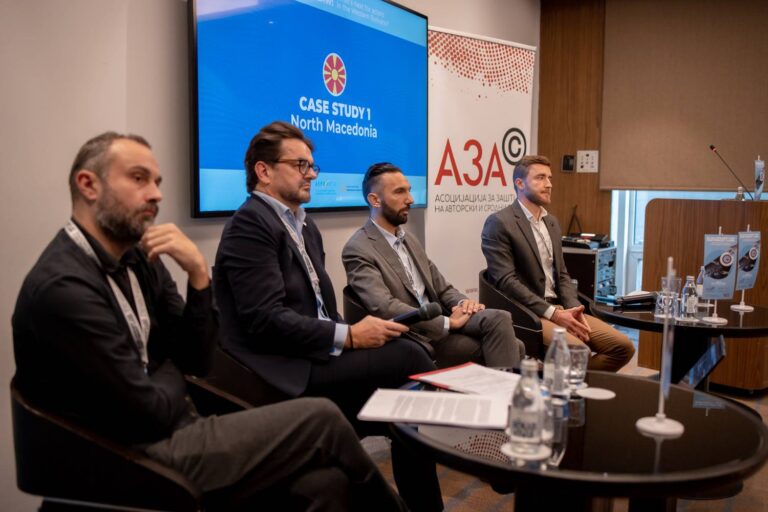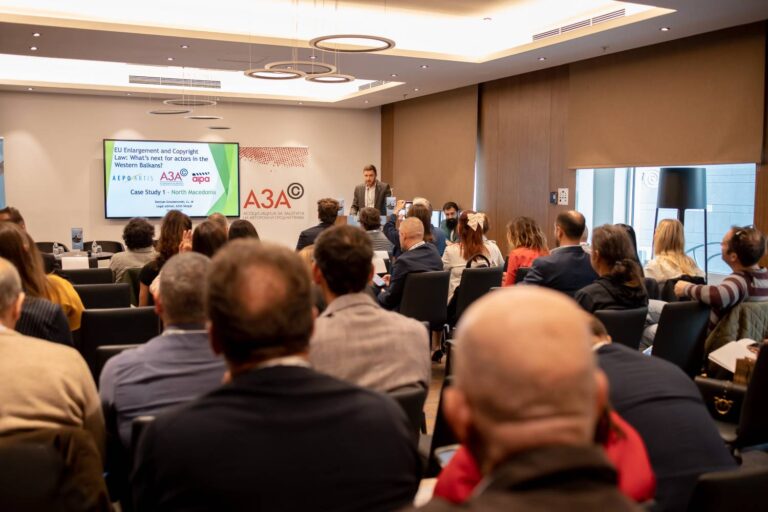Leaders in Audiovisual and Copyright Sector Gather in Skopje to Address Actors' Rights Amid EU Enlargement
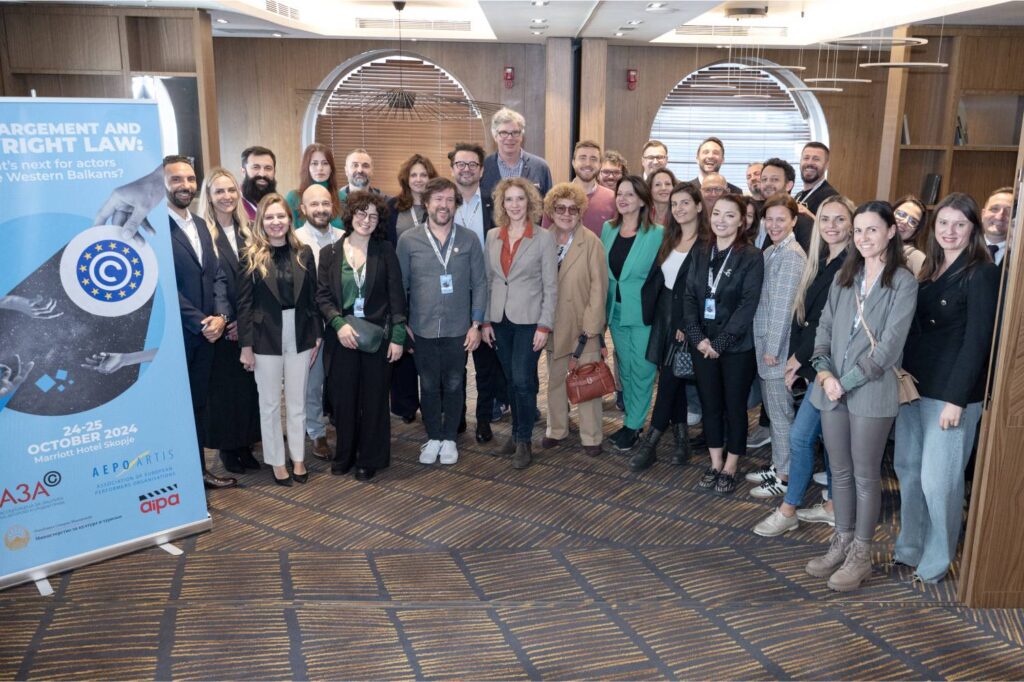
Leaders in Audiovisual and Copyright Sector Gather in Skopje to Address Actors’ Rights Amid EU Enlargement
On October 24-25, 2024, Skopje became the hub for a crucial conversation on the future of actors’ rights in the Western Balkans, as it hosted the conference “EU Enlargement: What’s Next for Actors in the Western Balkans?” The two-day event, which brought together key figures from across the region and Europe, focused on the opportunities and challenges the audiovisual sector faces as the Western Balkans continues its journey toward European Union membership.
The event featured prominent government officials, legal experts, representatives of collective management organizations (CMOs), and actors, who collectively examined how the region could align more closely with EU standards while ensuring the economic and creative rights of actors are upheld.
From the opening remarks by Kiril Gjozev, General Secretary of AZAS and Orhan Murtezani, Minister of EU Affairs, North Macedonia, to the insightful presentations by Maria Kanellopoulou from the EU Delegation to North Macedonia, and Ioan Kaes, General Secretary of AEPO-ARTIS, the conference set a tone of urgency and collaboration. As Gregor Presker, Slovenia’s Ambassador to North Macedonia, and actor Gorast Cvetkovski emphasized in their speeches, the audiovisual sector has a significant role in the region’s integration into the EU, but the road ahead requires both structural and legislative reforms.
Gregor Štibernik, Director of AIPA, Slovenia, played a key role in moderating several panels, guiding discussions that centered on how best to protect actors’ rights as the digital age transforms the industry. Participants spoke at length about the need for regional cooperation, acknowledging that aligning with EU standards presents both a challenge and an opportunity for the Western Balkans. Strengthening collaboration among actors and CMOs was seen as a critical step toward ensuring that national laws effectively protect performers’ economic and creative interests, while also providing them fair remuneration, especially in an increasingly digitalized world.
Several country-specific case studies were presented, offering a deeper look into the state of copyright and collective management for actors in North Macedonia, Serbia, Kosovo, Bosnia and Herzegovina, and Albania. These presentations, which featured regional experts such as Ivica Dimitrijevikj, President of Macedonian Actors’ Association and Jelena Ćuruvija Djurica from Serbia’s GOS, highlighted the diverse challenges faced by the sector in each country, while pointing to the common goal of aligning more closely with EU directives.
One of the recurring themes was the importance of fair remuneration for actors. As Uroš Rožič from AIPA, Slovenia, shared in his best practice example, ensuring actors receive equitable compensation for their work, particularly in the digital realm, is essential to maintaining a thriving and sustainable audiovisual sector. This sentiment was echoed by many speakers, who noted that empowering CMOs to effectively manage rights and distribute remuneration to actors will play a crucial role in the region’s successful integration into the EU.
As the conference progressed, attention shifted to the importance of establishing and strengthening collective management organizations. In several Western Balkan countries, such organizations remain underdeveloped or even nonexistent. Participants called for
government support to create an environment where CMOs can thrive, which would in turn allow actors to better navigate the complexities of copyright and intellectual property rights.
The discussions culminated in a recognition that adapting to the rapidly evolving digital landscape is critical. The growth of digital platforms, streaming services, and the advent of artificial intelligence pose both opportunities and risks for actors. As the region integrates into the European market, finding innovative ways to manage digital rights and combat issues like piracy will be central to the sector’s sustainability. Speakers stressed that developing modern tools and resources to assist CMOs in this effort will be key to improving transparency, efficiency, and the protection of actors’ rights in the digital age.
The event closed with a sense of optimism and determination. Gregor Štibernik highlighted the importance of regular follow-up meetings and ongoing regional collaboration to ensure the sustained implementation of the strategies discussed. As the Western Balkans moves closer to EU membership, the outcomes of this conference provide a strong foundation for ensuring that actors’ rights are not only protected but also enhanced in this new European landscape.
The conference was organized by AZAS and AEPO-ARTIS (Belgium) with the support of the Ministry of Culture and Tourism of the Republic of North Macedonia and in collaboration with AIPA (Slovenia).
